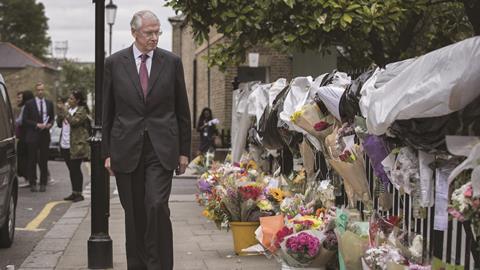Sir Martin Moore-Bick’s appointment as chair of the Grenfell Tower inquiry did not get off to a good start.
Drawing attention to an appeal he and two other senior judges had dismissed in 2014, newspapers argued that Moore-Bick had shown an unsympathetic approach to just the sort of people who had died in the dreadful west London fire. That appeal was brought on behalf of Titina Nzolameso, who could no longer afford to rent her home in Westminster when her benefits were reduced. It was only when the appeal reached the Supreme Court that Lady Hale and her fellow justices held that the council’s offer of a property in Milton Keynes did not satisfy legislation requiring Westminster to, ‘so far as reasonably practicable’, provide Nzolameso and her five school-age children with accommodation in the borough.
Once appointed, though, Moore-Bick lost no time in visiting the scene of the fire and speaking to local residents. The prime minister had promised not to set his terms of reference until Moore-Bick had been consulted. He, in turn, had asked residents what they thought those terms should be. If they wanted the inquiry to examine the wider issues of social housing policy then it would take him much longer to find out why so many people had died at Grenfell Tower.
Moore-Bick has every right to feel he was not given the support he needed. He was accompanied by an official when he met local residents but there was no sign that he had been offered public relations advice before his first visit. Unfortunately – but perhaps inevitably – he looked and sounded like a retired appeal judge. On his next visit to the neighbourhood he dressed down slightly, appearing without a tie, but articulate local campaigners still seemed to get the better of him.
And yet it is absolutely essential that he is not forced out on the spurious ground that he is too close to the establishment. That was what happened after Baroness Butler-Sloss was appointed to chair the current child sexual abuse inquiry, causing delays and damage from which that inquiry has not yet recovered. As lord chancellor, David Lidington was right to issue a statement, endorsed in subsequent interviews, in which he expressed ‘complete confidence’ that Moore-Bick would lead the Grenfell Tower inquiry ‘with impartiality and with a determination to get to the truth and see justice done’.
But what do we mean by ‘justice’? To some local campaigners, it apparently means early arrests. Nobody has explained to them that active criminal proceedings would inhibit an inquiry’s public hearings. An inquiry must not prejudice a prosecution by taking evidence that might influence a jury. Suspects would refuse to provide evidence that could be used against them.
[Moore-Bick] is clearly not the touchy-feely public figure that some campaigners apparently wanted. But he strikes me as the ideal person to assimilate a huge body of technical data
And yet, from what we now know of the fire last month, it seems highly unlikely that any individual or entity will ever be convicted of gross negligence manslaughter. It is one thing for the Crown Prosecution Service to allege that the police commander at Hillsborough football stadium was responsible for the disaster there in 1989. It is quite another to blame the Grenfell Tower fire on specific architects, building contractors, manufacturers, suppliers, councillors, officials or regulators. Any of them might have prevented the tragedy. But it is very hard to see how one of them can be said to have caused it. All could plausibly argue that they were merely doing what was required of them at the time.
As I suggested to her the other day, I think that Alison Saunders, the CPS director, should announce – after considering initial police reports – that prosecutions would not be in the public interest at the moment. She would need political cover for this, of course, and so the attorney general would need to clear it with the prime minister. That would allow the inquiry to proceed quickly. And, as we have seen from Hillsborough, it would not preclude a prosecution at a later stage if the inquiry prompts further investigations. But I suspect that nobody will have the courage to face down the inevitable – though misguided – public outrage.
I know quite a few judges these days, but Moore-Bick is not one of them. He is clearly not the touchy-feely public figure that some campaigners apparently wanted. But he strikes me as the ideal person to assimilate a huge body of technical data and explain how a simple fire led to such huge loss of life. Unlike others who must have been approached, he is also willing and able to take on this challenging inquiry. If he is forced out for failing to ‘emote’ on camera it will be much harder to find a replacement. It would also be a further blow to public confidence in our system of public inquiries and, indeed, in the judiciary as a whole.
































3 Readers' comments